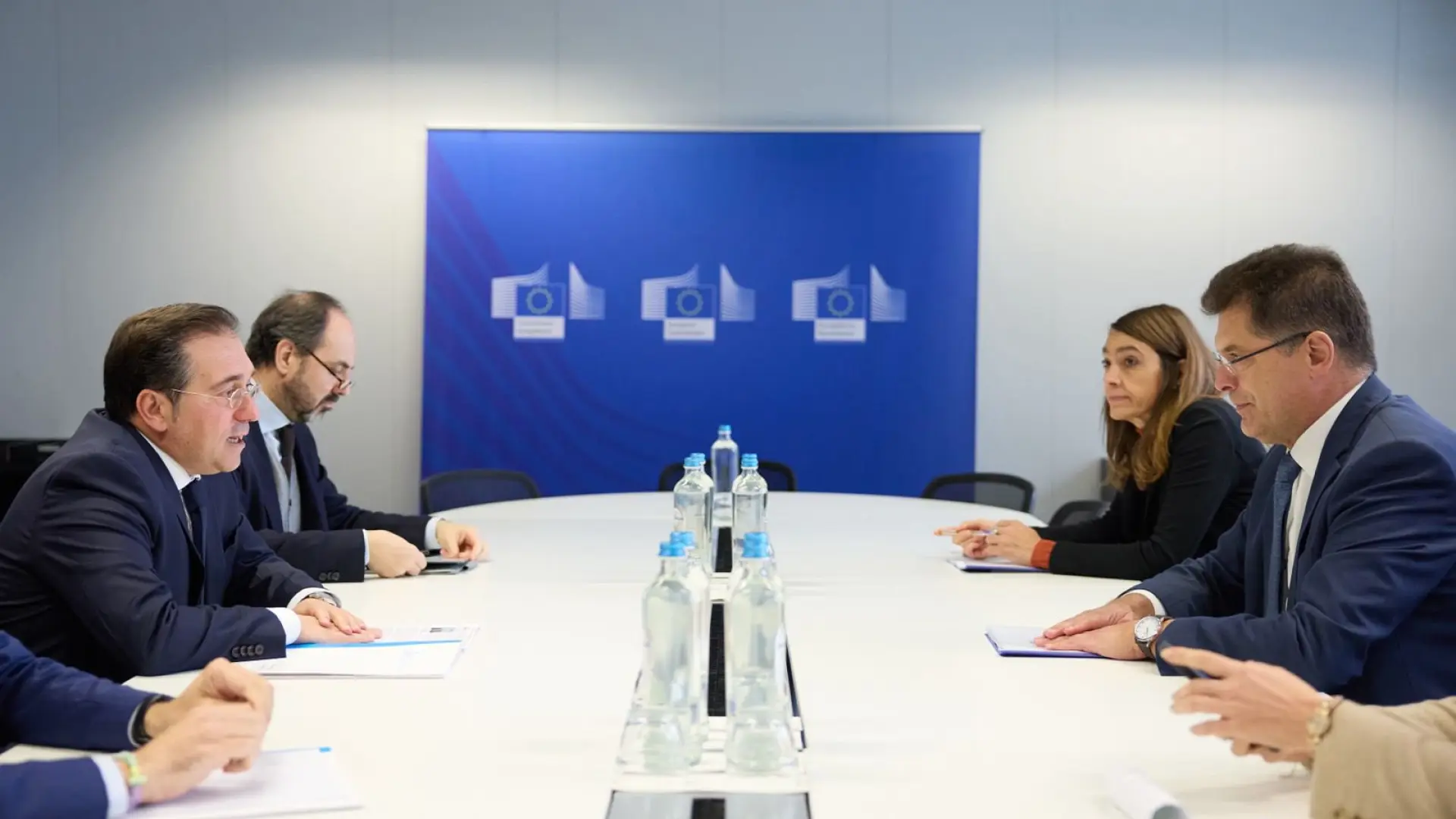The The ravages of the DANA over a large part of Spain continue to increase.With the rescue and reconstruction work underway and with the Government being criticized for its inaction and slowness in some cases, in a situation of citizen pressure also on the Executive of the Valencian Community. In this scenario this Monday the Foreign Minister, José Manuel Albares, met in Brussels with the Commissioner for Crisis Management, Janez Lenarcic.and with the director of the Directorate General for the Regions, Themis Christophidou. The objective has been to address “the instruments and mechanisms” of EU support in the face of the catastrophe.
But Spain has still not applied for the European Civil Protection Mechanism, prepared as an umbrella of aid in the case of natural disasters such as the one that has been occurring in Spanish territory during the last few days. It is a system created in 2001, which aims to strengthen cooperation in civil protection – it is a deployment of troops and non-financial resources – between the Member States of the European Union, the European Union and the Member States of the European Union. The aim of the system is to strengthen cooperation in the field of civil protection – it is a deployment of troops and non-financial resources – between the Member States of the Union and ten other participating countries “in order to improve prevention, preparedness and response to disasters”.The European Commission explains. When there is a positive emergency response, any country can request assistance through the EU Civil Protection Mechanism.
The Commission plays a key role in coordinating disaster response around the world and is responsible for the coordination of the EU Civil Protection Mechanism. bears at least 75% of the operational and transportation costs of deployments.. However, it must be the member country concerned that requests the aid, as it is not automatic.
In this sense, the Community Executive has made clear its readiness to support Spain. “I reiterated the readiness of the EU to help after this tragedy in full solidarity with the people and communities affected,” said the commissioner. However, a Member State is not obliged to resort to the Mechanism, which provides logistical but not financial support. For example, in the floods in Central Europe a few months ago Hungary did ask for support from this channel, but neither Austria nor Slovakia did.
“What is definitely important is that everyone does everything possible to help the citizens of Valencia and the region to cope with the situation. The EU, as you know, has provided what support it could, particularly in the form of satellite imagery, and we stand ready to assist in any other way that is deemed appropriate,” summarized European Commission spokesman Eric Mamer.
The EU, as you know, has provided what support it could, in particular in the form of satellite imagery, and we are prepared to assist in any other way
Also on the table is the option of the European Solidarity Fund, which is managed by Christophidou’s department, precisely. It has a use for after the DANA, and not for the during, because. is the Union’s main instrument to support disaster recovery. It is an expression of solidarity, as explained from Brussels. It has been used in situations such as floods, forest fires, earthquakes, storms or droughts.
The Solidarity Fund was created in 2002 to respond to the floods that affected Central Europe in the summer of that year.. Since then, it has provided support on more than 130 occasions. To date, twenty-four member states (plus the United Kingdom) and three candidate countries (Albania, Montenegro and Serbia) have received assistance from the Solidarity Fund, and in total more than EUR 8.2 billion.
How does the fund work? It is a subsidy that complements the public expenditure of the beneficiary State, in this case Spain.It is intended to finance essential emergency and recovery measures to mitigate damage that, in principle, is not insurable. The measures to be taken include the immediate restoration of the functioning of infrastructures and facilities in the sectors of energy, drinking water, sewage disposal, telecommunications, transport, health and education; the provision of temporary accommodation and the financing of relief services to cover the needs of the affected population; this also includes the immediate securing of preventive infrastructures and measures for the protection of the cultural heritage.
It also includes for example clean-up of disaster areas, including natural areas, as well as quick assistanceincluding medical assistance, to the population affected by a major public health emergency and protection of the population from the risk of being affected. In this scenario, the Union may grant financial assistance to any Member State or candidate country requesting it following a major natural disaster. In other words, it is not directly applicable, but requires a ‘call’ in this case from Spain. The affected country must submit its application within twelve weeks of the catastrophe.. The Commission then evaluates the application and proposes an amount of financial assistance.
The procedure for allocating a grant, followed by a budgetary procedure (with approval by the Parliament and the Council), can take several months. Once the appropriations are available, the Commission signs an agreement with the beneficiary State and provides the grant. There is also the possibility for Member States to request the payment of an advance, which the Commission may decide to grant, provided that sufficient resources are available. The maximum amount of the advance payment is 25% of the total planned amount of the financial contribution from the Solidarity Fund. and is limited to EUR 100 million.



